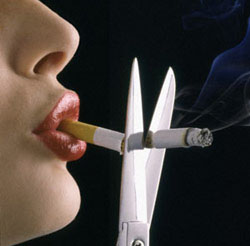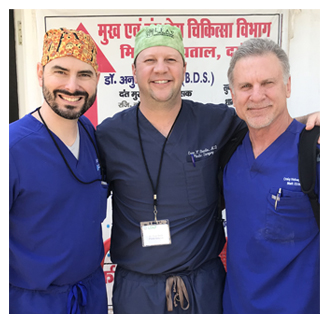
What are the risk factors associated with smoking and surgery?
Smoking can be detrimental to the body’s normal function, especially when healing after a surgery. Dr. Hobar recommends stopping smoking at LEAST 30 days prior to and 30 days after his procedures, especially those involving the face, breasts, and abdominal areas. Continuing to smoke can put you at a higher risk for serious complications during and after surgery including:

- Increased risk of blood clots
- Increased risk of infection
- Impaired healing of bones, skin, and wounds
- Increased difficulty in breathing during and after surgery
- Change in the breakdown of drugs in the body
Why does smoking cause an increased risk with surgery?
Nicotine in tobacco (or any kind) constricts the small blood vessels that supply your skin and the underlying tissues with blood and other nutrients. The healing process is greatly impeded by any nicotine in the bloodstream because the surface vessels are not able to do the repair work that is required of them. The risk to successful healing is so great that for many cosmetic surgeries, patients are not to be exposed to nicotine prior to surgery. Please contact our office for additional information to help quit smoking prior to surgery. Please let us know if you have been exposed to nicotine through smoking, secondhand smoke, smokeless tobacco, or any nicotine replacement products.
What can I expect with quitting?
Within 24 hours: Most of the nicotine and carbon monoxide will be eliminated from your body and improve heart rate and oxygen levels within your blood
Within 1 week: Your lungs begin to recover and cells clear out excess mucus
Within 2 weeks: Your lungs and large airways begin to recover and become less sensitive to stimuli such as a breathing tube that will be placed during surgery. This will decrease risk of breathing difficulties with intubation.
Within 3 weeks: Your body’s repair process has improved and your ability to heal wounds has greatly increased
Within 4 weeks: The smaller airways in your lungs begin to improve and will continue to repair over the next several months
Within 6 weeks: Your lungs begin producing normal mucus amounts that will decrease breathing complications
Within 8 weeks: Your risk of lung complications is much lower than if you would have continued smoking. Your blood consistency will be improved and your heart rate will decrease. Your immune system and overall ability to heal surgical wounds will improve.
Why do I need to avoid smoke after surgery?
Being exposed to smoke after surgery increases your risk for adding extra stress to your heart, increasing your blood pressure, and reducing the amount of oxygen that travels to your blood and body tissues allowing healing.
Still need help?
National Alliance for Tobacco Cessation – “Become an EX” Program
The American Lung Association – “Freedom from Smoking” Program
The American Cancer Society 1-800-227-2345
If you have any questions regarding our practice policy on smoking or need additional information to quit please call 972-566-7300






